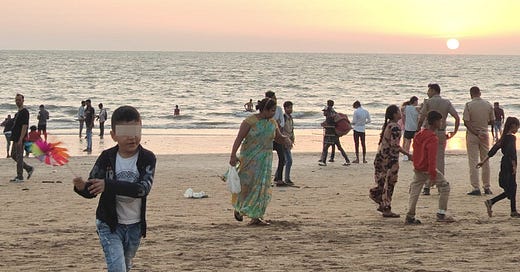Dear friend,
A couple of years ago I had the pleasure of being involved in the retelling of a story that many of us are almost too fascinated by. In fact, in the early months of the pandemic, Ajay Krishnan and I had actually discussed the idea as a story for Fifty Two as the publication was taking shape. We’d spent many high-volume evenings in the company of fellow enjoyers of the idea of India in which most of us understood what the basic structure doctrine is (the categorisation of the features of the Constitution into parts that can be amended, and a core based on foundational values that cannot), and whether they supported it or not. But we figured it was beyond most of us to plunge a level deeper.
So when the Anil Divan Foundation were producing S2 of their podcast, Friend of the Court, I elbowed my way in with pleasure, and spent many happy hours reading and listening to the season’s historical and legal explanation for how the basic structure doctrine came to be, and how it’s shaped Indian democracy. You can listen to that season here, narrated by Raghu Karnad.
But how do so many of us know so much about the Constitution? Why do we care so much about its values? What are the ways in which we learned about it that were seeded in the soil that bears us and in the water we contain? There’s a lifetime of study in these questions, and as someone who wants this vision and these values to endure in a future I need not live to see, it feels deeply personal. For S3 of Friend of the Court, the ADF reached back into history to reconstruct the basis and development of these values through the stories of seven unusual people who helped bring them to life in the decades before and after Indian independence.
I feel shy and proud to have been asked to narrate some of the episodes in this new season. There’s only one woman featured in the line-up, so I recommend you listen to her episode first.
I’m grateful to my employers at Godrej for giving me the chance to ply my wagon on this track while running on another. In the year since I’ve expanded my career into corporate India I’ve enjoyed learning about the work of expansive and progressive institution-building from people who care deeply and sincerely about it. They have escaped the poisoned logic of meritocracy that so many educated Indians, including many from populations historically excluded from economic mobility, accept without question. If you can believe it, my job led to my acquiring enough knowledge to write for the Hindu Sunday Magazine, an honour I had not had previously. Here’s the story.
I’ve also really enjoyed working on a podcast for the DEI Lab called India Included, because it features some of the most vibrant and original voices I’ve heard emerging from the white-collar workplace in India. It’s hosted by Parmesh Shahani, who does what no one else could with his powers of conversational synthesis, warmth and immediacy.
We were lucky that our nimble and talented colleagues on this project were Maed In India, podcasters among podcasters, and some of my favourite people. They’re also the producers of The Lit Pickers, of which Deepanjana and I produced a full season over late 2023 and early 2024, and which I don’t think I ever promoted on this self-promotional newsletter.
I literally have said too much, as this email indicates. Until next time, I wish you good health and hearty courage.
Supriya



